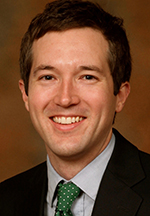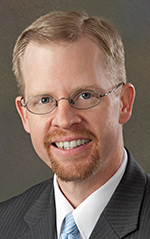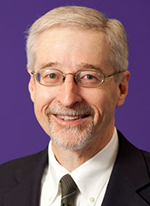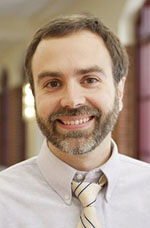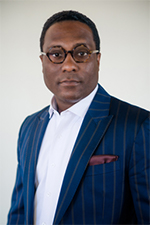Voices: Money can stop your heart
Ananias and Sapphira provide a cautionary tale of the danger of holding back from God. We can’t claim to be Christian, to have Jesus as our Lord, and then withhold from God. If Jesus really is Lord, he gets everything, including our whole heart.
 Eric BlackFor Ananias and Sapphira, money was like a wad of heartworms that stopped their hearts cold. Money so filled and choked their hearts, they would rather lie about their hearts than own up to the truth.
Eric BlackFor Ananias and Sapphira, money was like a wad of heartworms that stopped their hearts cold. Money so filled and choked their hearts, they would rather lie about their hearts than own up to the truth.
The lie Ananias and Sapphira told involved money, but money was just the vehicle for the lie, like a chip is a vehicle for delivering salsa. The lie Ananias and Sapphira told was about the condition of their hearts. By giving some of the money, they wanted to appear devoted to God. By holding money back, they proved their hearts were divided.
They also insinuated weakness in God. Their actions said God wouldn’t know, God wouldn’t care and God would be powerless to do anything about it anyway.
 The reality is God does know, God does care, and God is perfectly able.
The reality is God does know, God does care, and God is perfectly able.
Was money the problem? No. God doesn’t need the money. Psalm 50 records Godsaying: “I don’t want or need your animal sacrifices. I own everything, and can get an animal any time I want. What I want is your heart.”
Ananias and Sapphira thought too little of God, and so they gave God too little of their hearts. They thought God was a small god that could be appeased and fooled withsomething so simple as a few dollars. Throw a few bills in the plate, and they could keep the rest for themselves, and none would be the wiser.
God thought otherwise. God knew otherwise. Our thoughts and hearts are not hidden from God.
Ananias and Sapphira thought it was about their money when it was really about their hearts.
The story of Zacchaeus demonstrates the joy Ananias and Sapphira might have known if they had only realized the truth.
Zacchaeus was a tax collector who amassed a fortune by extorting money from his own people. Jesus met him, invited himself over to Zacchaeus’ house for dinner, and Zacchaeus ended up giving back all the money he took from his people—times four.
In that moment, Zacchaeus gave his whole heart to God. As with Zacchaeus, every single one of us, when we encounter Jesus, have our hearts laid bare and presented with the choice of masters. Either Jesus will own us, or something else—maybe money—will.
We will know our master in that moment of encounter with Jesus. When our hearts are laid bare before him, we either will give ourselves completely to him, or we will hide ourselves and squirm away. Zacchaeus gave himself completely to Jesus, proving it with his extravagant repentance.
How extravagant was it? How much money did Zacchaeus give back? We’re not told how much money Zacchaeus gave back, because his story isn’t about his money. His story is about his heart.
Likewise, we’re not told how much money Ananias and Sapphira held back, because their story isn’t about their money. Their story is about their hearts.
What does your money say about your heart?
Mixing God and money leaves many with heavy hearts. For example, some feel guilty about what they give to God, not because they give too much, but because they think they give too little.
Some of these are giving all they can afford to give. They are like the woman Jesus praised for putting all she had into the offering plate. Her two coins were more of her heart than the piles of money given by much wealthier people.
For those who give all they can give, know this: God sees your heart and cherishes your full devotion.
Others feel guilty for what they give to God because they give so little of what they can give. For these, money is clogging their hearts like a growing wad of heartworms. They get agitated when money comes up at church. Some quit going to church altogether so they won’t be confronted with what God wants to do in their hearts. If they only knew God wants to open their hearts and free the flow of life again.
For these, know this: God knows, God cares and God is perfectly able.
If God and money are a recipe for guilt, I have a simple—though not easy—prescription: Give more of your heart to God. The money will sort itself out.
Ask yourself these questions:
• Do I give to avoid guilt?
• Do I give because someone’s manipulating me?
• Do I give to manipulate God?
• Do I give to get God off my back?
If you answer “yes” to any of those questions, ask yourself what it would be like to answer “yes” to these questions:
• Am I giving as celebration?
• Am I giving to say thanks to God?
• Am I giving as an expression of joy?
• Am I giving as faith in the possibilities of God’s future for us?
Don’t let money stop your heart. Instead, find freedom and fullness of life by giving your heart completely to God.
Eric Black is pastor of First Baptist Church in Covington, Texas, and a member of the Baptist Standard Publishing board of directors.

